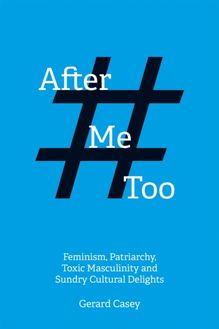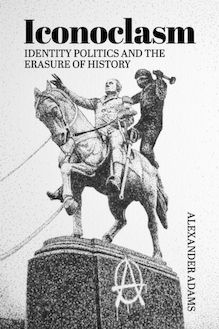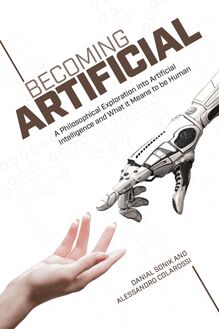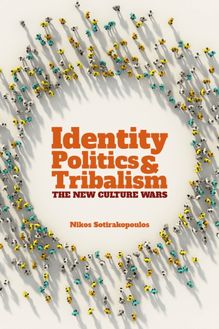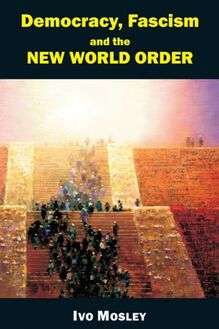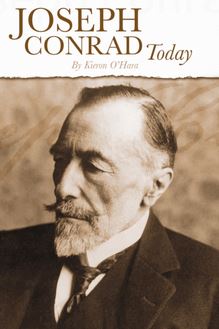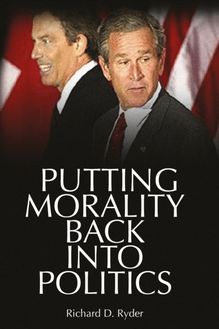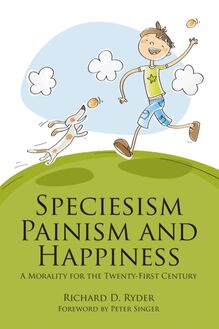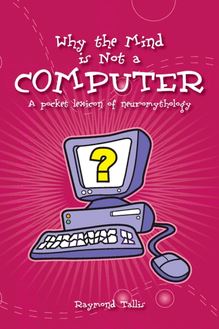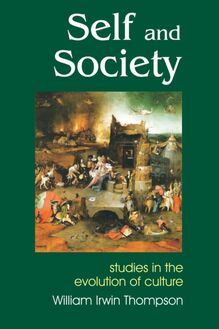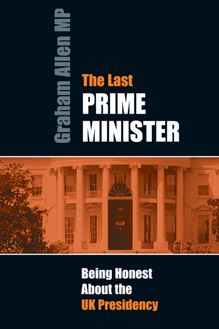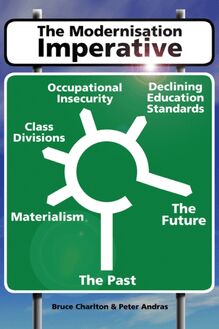-
 Univers
Univers
-
 Ebooks
Ebooks
-
 Livres audio
Livres audio
-
 Presse
Presse
-
 Podcasts
Podcasts
-
 BD
BD
-
 Documents
Documents
-
- Cours
- Révisions
- Ressources pédagogiques
- Sciences de l’éducation
- Manuels scolaires
- Langues
- Travaux de classe
- Annales de BEP
- Etudes supérieures
- Maternelle et primaire
- Fiches de lecture
- Orientation scolaire
- Méthodologie
- Corrigés de devoir
- Annales d’examens et concours
- Annales du bac
- Annales du brevet
- Rapports de stage
La lecture à portée de main
Vous pourrez modifier la taille du texte de cet ouvrage
Découvre YouScribe en t'inscrivant gratuitement
Je m'inscrisDécouvre YouScribe en t'inscrivant gratuitement
Je m'inscrisEn savoir plus
Vous pourrez modifier la taille du texte de cet ouvrage
En savoir plus

Description
Sujets
Informations
| Publié par | Andrews UK |
| Date de parution | 06 novembre 2013 |
| Nombre de lectures | 1 |
| EAN13 | 9781845407407 |
| Langue | English |
Informations légales : prix de location à la page 0,0324€. Cette information est donnée uniquement à titre indicatif conformément à la législation en vigueur.
Extrait
Title page
Universities
The Recovery of an Idea
Gordon Graham
IMPRINT ACADEMIC
Copyright page
2013 digital version by Andrews UK Limited
www.andrewsuk.com
Copyright © Gordon Graham, 2002
The moral rights of the author have been asserted
No part of any contribution may be reproduced in any form without permission, except for the quotation of brief passages in criticism and discussion.
Published in the UK by Imprint Academic
PO Box 1, Thorverton EX5 5YX, UK
Published in the USA by Imprint Academic
Philosophy Documentation Center
PO Box 7147, Charlottesville, VA 22906-7147, USA
Preface
The first version of this book was written almost five years ago, but was unable to find a publisher. I approached no fewer than eleven and all of them said that academic interest is now so specialized, no one would be interested in reading what is essentially an academic book about universities in general. In the belief, or at least the hope, that this could not be so, I produced copies for distribution to people I thought might be interested. It was picked up and included in the Booknotes section of the journal Philosophy , and as a result I had quite a number of requests for copies, a number sufficient to suggest that the publishers were wrong about the level of interest. I would like to record my thanks to all those who wrote to me appreciatively about my attempt to prompt a debate about modern British universities that would avoid partisanship and employ the same sort of standards that the best academic inquiry prides itself on.
Eventually, by good fortune I encountered an interested publisher. This gave me the opportunity to revise the text, to note the appearance in the meantime of The New Idea of a University by Duke Maskell and Ian Robinson, and to update the sections on teaching quality, research assessment and student fees. I am very grateful to Keith Sutherland of Imprint Academic for being willing to take chances other publishers will not take, and to Dr Robert Grant of Glasgow University for pointing me in his direction.
Gordon Graham
King’s College
University of Aberdeen
April 2002
Introduction
The title of this book has been chosen in allusion to John Henry Newman’s The Idea of a University . Newman’s essay was originally a series of lectures (or ‘Discourses’) delivered in Dublin in advance of the establishment of the Catholic University of Ireland in 1854. The essay first appeared as a set of pamphlets, soon after to be bound together and is still in print.
The context for these lectures was a dispute which has no interest for most people today. Newman was providing a theoretical defence of the Irish Catholic hierarchy’s objection to the secular university colleges established in Ireland by the British Government in 1845 (though ironically this Catholic alternative eventually formed the basis of the National University of Ireland which united most of these same colleges). He mounts his defence on the strength of a thesis that is unlikely to meet with much support in contemporary universities, namely the impossibility of a secular, non-religious university education. As a consequence of this context, a central part of his argument has to do with the role and teaching of theology, a subject absent from the curricula of most modern British universities, and a minority subject where it is still taught. A further, substantial part of the lectures is devoted to reconciling the authority of the church with the investigations of modern science, another topic likely to be of limited interest today. Yet despite these important differences between Newman’s time and ours, The Idea of a University (especially Discourses V, VI and VII) still has things to say that are relevant to thinking about contemporary universities.
More surprising than this continuing relevance, however, is the fact that in the century and a half since Newman wrote, his book has had no significant successor, even though monumental changes have taken place in universities during this same period. Indeed, more striking still is the fact that Newman’s is one of very few attempts ever made to think directly about the nature and purpose of a university. Given the age of the institution, and its importance to the intellectual and cultural life of this country over many centuries, this is a remarkable fact.
There is one recent exception to this generalization, namely The New Idea of a University by Duke Maskell and Ian Robinson (London, 2001) which expressly discusses Newman, and deplores what it sees as a radical departure among contemporary universities from the ‘old’ idea. According to Maskell and Robinson in recent times “[t]he university has been remade not in defiance of Newman but in indifference to him. But he says things that, if anybody paid attention to them, could not fail to kill instantly our new orthodoxy about the universities making us rich” (Maskell and Robinson 2001: 25). Now, whatever the justice of their complaint, the fact is as I have just suggested - the context of Newman’s lectures was inevitably quite different to that of the present day. His Discourses undertake to characterize and defend what has come to be known as a liberal education. Though often cited in defence of more arcane subjects by university teachers, the actual influence that is to be attributed to his book has probably been overestimated. It is the traditional American liberal arts college that has come closest to Newman’s ideal, not the universities of Britain from whose experience his reflections arose. There is to my mind a dangerous romanticism in thinking that once upon a time British universities were suitably Newmanesque until the arrival of utilitarian Philistines, and Maskell and Robinson constantly run the risk of falling into this trap. In several places Newman’s ‘arguments’ are weak, as it seems to me, and to call upon them is unlikely “to kill instantly” the ideas that have won favour in the minds of many modern academics. Nevertheless there is something important to emulate in Newman’s enterprise - the spirit of inquiring clearly and critically into the very idea of a university and its value.
The purpose of this book, then, is not to review or revitalize Newman’s arguments, though, since a number of the themes he addresses are still topical, I shall refer to some of his claims from time to time in the chapters that follow. Nor is it my aim to deplore the present and lament the past, a charge that might not wholly inaccurately be brought against Maskell and Robinson. Rather, my purpose in writing is to draw attention to a number of interrelated issues that are of considerable contemporary significance, to examine them in a sustained way and, it is to be hoped, begin a discussion that is long overdue - namely some inquiry into how we should regard universities and what it is reasonable to expect from them.
Such a discussion (as I shall conduct it) is an exercise in two branches of philosophy - philosophy of education and applied philosophy. Interestingly, the recent history of both is singularly different. The philosophy of education, after a short lively period dominated by R.S. Peters, is in the doldrums. Even at its height, the philosophy of higher education never got much attention. By contrast, applied philosophy, the attempt to relate philosophical questions to social and moral issues, has flourished in recent years as never before. It has largely been concerned with ethical questions and with public issues related, in one way or another, to the question of social justice. Yet there is good reason to think, as I hope to show, that the traditional questions of philosophy of education, which have to do with learning, understanding, science, practical training and the value of knowledge, have important implications in the sphere of social policy with respect to higher education.
The task of exploring these implications is difficult for two reasons. Any discussion of the nature and conduct of universities at the present time runs the risk of being pigeon-holed, that is, of being automatically bracketed with one of two opposed positions. On the one side there is the modernizer who believes that old ideas must be abandoned in the face of the necessity to deal with ‘reality’, and on the other there is the ‘traditionalist’ who believes that every such move sells the pass on values and institutions that are vital to civilization as we know it, and to which we should fight to return. The New Idea of a University might plausibly be said by its critics to fall into the latter camp.
Yet these two views are caricatures of each other, and if serious thinking about universities and the policies which should govern them is to take place, it is essential that the straight-jacketed thinking this sort of dichotomy inevitably induces be abandoned. Both contemporary conditions and educational history are more complex than would favour either position - and hence the sort of thinking that needs to be done must be more complex too. This very complexity, however, gives rise to the second difficulty. The variety of topics that need to be considered if we are to introduce any measure of coherence into thinking about the modern university is very considerable. It is necessary to sketch the history of the institution, to consider the ideas of higher education and academic research, to record recent social trends, to look at a spectrum of social policies, to explore cultural images, to examine educational methods, and to review the economics of public finance. This range of tasks is somewhat daunting. Yet it is at heart, in my view, philosophical, and it is questions in the philosophy of education which must make the running.
Such is the scope of these questions, however, th
-
 Univers
Univers
-
 Ebooks
Ebooks
-
 Livres audio
Livres audio
-
 Presse
Presse
-
 Podcasts
Podcasts
-
 BD
BD
-
 Documents
Documents
-
Jeunesse
-
Littérature
-
Ressources professionnelles
-
Santé et bien-être
-
Savoirs
-
Education
-
Loisirs et hobbies
-
Art, musique et cinéma
-
Actualité et débat de société
-
Jeunesse
-
Littérature
-
Ressources professionnelles
-
Santé et bien-être
-
Savoirs
-
Education
-
Loisirs et hobbies
-
Art, musique et cinéma
-
Actualité et débat de société
-
Actualités
-
Lifestyle
-
Presse jeunesse
-
Presse professionnelle
-
Pratique
-
Presse sportive
-
Presse internationale
-
Culture & Médias
-
Action et Aventures
-
Science-fiction et Fantasy
-
Société
-
Jeunesse
-
Littérature
-
Ressources professionnelles
-
Santé et bien-être
-
Savoirs
-
Education
-
Loisirs et hobbies
-
Art, musique et cinéma
-
Actualité et débat de société
- Cours
- Révisions
- Ressources pédagogiques
- Sciences de l’éducation
- Manuels scolaires
- Langues
- Travaux de classe
- Annales de BEP
- Etudes supérieures
- Maternelle et primaire
- Fiches de lecture
- Orientation scolaire
- Méthodologie
- Corrigés de devoir
- Annales d’examens et concours
- Annales du bac
- Annales du brevet
- Rapports de stage
